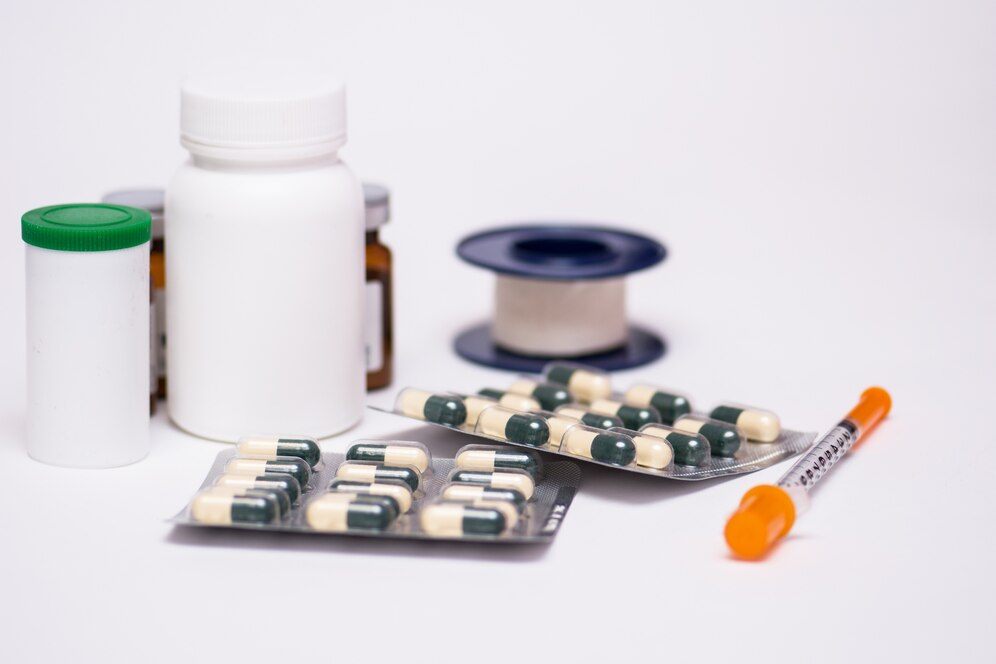Last updated on May 10th, 2025 at 05:02 pm

Are Generic Medicines as Safe as Brand Name Drugs: Generic medicines are pharmaceutical products designed to be nearly identical to brand-name drugs in terms of their active ingredients, dosage form, strength, route of administration, and intended use. They offer a cost-effective alternative to the more expensive brand-name medications while maintaining the same therapeutic effects and safety profile.
The concept behind generic medicines revolves around making essential healthcare treatments accessible to a broader population without compromising on quality or efficacy.
Importance of Generic Medicines
The importance of generic medicines cannot be overstated, as they play a pivotal role in providing affordable and accessible healthcare solutions to individuals worldwide. Generic medicines offer a cost-effective alternative to brand-name drugs, making essential treatments more attainable for diverse socioeconomic groups. This affordability is particularly vital in ensuring that patients from all walks of life can access the medications they need without financial strain.
The importance of medicines extends beyond cost savings. Global healthcare systems benefit from the availability of generic drugs. In both developed and developing nations, they contribute to effective disease management, improved public health outcomes, and equitable healthcare access. By reducing healthcare costs, governments and healthcare providers can allocate resources more efficiently, supporting comprehensive healthcare initiatives.
> Consult a doctor and Order Medicine Online
In essence, the importance of generic medicine lies in its ability to bridge the gap between quality healthcare and affordability. They stand as a cornerstone of modern medicine, exemplifying how innovation, accessibility, and patient well-being can harmoniously intersect.
Generic Medicines Facts
Generic medicines are generally considered to be as safe as brand-name drugs. Here are some key reasons why generic drugs are considered safe:
- Bioequivalence: Regulatory agencies, such as The Central Drugs Standard Control Organisation(CDSCO), require that generic medicines demonstrate bioequivalence to their brand-name counterparts. This means that generic drugs must contain the same active ingredient in the same amount and be absorbed into the bloodstream at a similar rate as the brand-name drug. This ensures that the generic drug will produce the same therapeutic effects as the original drug.
- Stringent Approval Process: Generic medicines go through a thorough review process by regulatory authorities before they are approved for sale. The manufacturers of generic drugs must provide data to demonstrate that their products are equivalent to the brand-name drugs in terms of safety, efficacy, and quality.
- Quality Control: Generic drug manufacturers are required to follow strict quality control standards, known as Good Manufacturing Practices (GMPs), to ensure that their products are consistently produced to high standards. This includes rigorous testing of the active ingredients, as well as the overall formulation of the drug.
- Post-Market Surveillance: After a generic drug is approved and available on the market, regulatory agencies continue to monitor its safety. Reports of adverse events or side effects are collected and analyzed to identify any potential safety concerns. If safety issues arise, regulatory agencies can take action to ensure patient safety.
- Labeling and Information: Generic medicines are required to have the same labelling and information as brand-name drugs. Patients and healthcare providers have access to the same information for both generic and brand-name drugs.
While generic medicines are designed to be as safe and effective as brand-name drugs, it’s important to note that individual responses to medications can vary. Some patients may have allergies or sensitivities to specific ingredients, including inactive components in the drug formulation. If you have concerns about switching from a brand-name drug to a generic version, or vice versa, it’s advisable to discuss your concerns with your healthcare provider.
Read: What are Generic Medicines?
Conclusion:
Generic medicines stand as a testament to the remarkable progress of modern medicine, embodying the principles of affordability, accessibility, and reliability. Their equivalence to brand-name drugs in terms of safety, efficacy, and quality signifies a triumph in pharmaceutical innovation and regulatory oversight.
The availability of generic medicines not only alleviates the financial burdens faced by patients but also bolsters healthcare systems worldwide, enabling them to extend their reach to broader populations and ultimately improve public health outcomes. As the healthcare landscape continues to evolve, the enduring importance of generic medicines remains undeniable.
FAQs on Generic Medicines
Q1. Are generic medicines as safe as brand name drugs?
Yes, generic medicines are generally considered to be as safe as brand name drugs. Regulatory agencies, such as the CDSCO, require that generic medicines demonstrate bioequivalence to brand-name drugs, ensuring that they have the same active ingredients, strength, dosage form, and route of administration. It also undergoes rigorous testing and quality control processes to ensure its safety and effectiveness. However, individual responses to medications can vary, so it’s important to consult your healthcare provider if you have any concerns.
Q2. How do regulatory agencies ensure the safety of generic medicines?
Regulatory agencies, such as the CDSCO, have strict guidelines and standards in place to ensure the safety and efficacy of generic medicines. Before a generic drug can be approved for sale, it must demonstrate bioequivalence to the brand-name drug through thorough testing.
The manufacturing facilities producing generic medicines must adhere to Good Manufacturing Practices (GMPs) to maintain consistent quality. Additionally, post-market surveillance allows regulatory agencies to monitor and investigate any reported adverse events associated with generics.
Q3. Can I switch from a brand name drug to a generic version without worry?
In most cases, yes. Switching from a brand name drug to a generic version should not pose a safety concern. However, it’s a good practice to communicate with your healthcare provider before making any changes to your medication regimen.
Related Links: